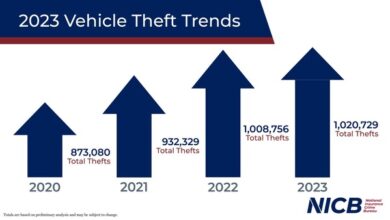Timely Shipment Delivery a Major Concern Among U.S. Transporters, Freight Forwarders
More than 70 percent of freight in the U.S. is moved by trucks, according to the American Trucking Association. The industry currently has 1.46 million drivers but is still falling short in order to meet rising demand due to the increase in online shopping.
The unyielding increase of eCommerce is posing a huge challenge for freight forwarders, transport and logistics companies to find capacity and ensure timely delivery, according to the American Trucking Association. The shortage of roughly 50,000 truck drivers across the country is hitting both retailer’s wallets and consumer experience. Retailers are experiencing delayed shipments and incurring higher costs to have goods delivered on time. Retailers risk losing out on the busy shopping period, if delivery timeframes are not met.
To offset truck shortages and counter thinning margins driven by Amazon’s influence on the delivery market, legacy logistics and transport companies are facing increasing pressure to become more efficient, according to the American Trucking Association. Logistics and transport companies are partnering with technology experts for deployment of Robotics Process Automation (RPA) and Artificial Intelligence (AI) solutions to boost cost savings and better facilitate the flow of goods throughout the world’s largest consumer market.
Intelenet Global Services claims to have at least one solution.
“Despite restricted resourcing, freight forwarders, logistics and transport companies are expected to give real time status updates to retailers on their shipments. Not only should these updates be timely, they also need to be accurate,” said Abhinav Singh, senior director of business transformation at Intelenet Global Services. “Unless an organization was born in the cloud, their reliance on paper is heavy-shipment bookings, tracking and tracing, customs processes, contract and rate changes, claims processing can be manual and repetitive processes. Data needs to be updated, indexed and organized for effective processing.”
Many still rely on manual processes, which are time intensive and prone to errors and in turn can hinder delivery schedules and further add to frustration for retail clients, according to Singh. “Need of the hour is to recalibrate the operating model. Identify the repetitive, rule based tasks and outsource or automate them,” he said. “Outsourcing can help leverage multiple time zones. Automation can provide up to 25 percent reduction in cost while cutting processing time by as much as 40 percent. This in turn helps reduce manual intervention, minimizes errors that result in revenue leakage, and improves user experience. Core staff can then redirect their focus on more domain centric and value-added activities to drive customer engagement and improve net promoter scores.”
Intelenet is a global business process outsourcing solutions provider, committed to delivering to its client’s strategic goals and helping clients control bottom line while enhancing the top line.




